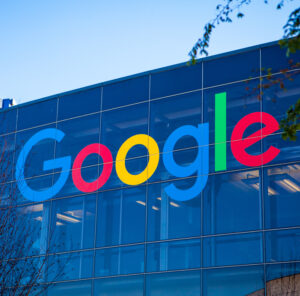Here’s today’s AdExchanger.com news round-up… Want it by email? Sign up here.
Netflix Gets Its Head In The Game
Netflix’s ad business will reshape its priorities.
For example, last year, Netflix started acquiring game studios and an explicit part of its pitch was that its ad-free model meant creators could focus on the gaming content, rather than on monetization.
But now that Netflix is about to go AVOD, that pitch could change.
Mobile gaming, after all, is both a huge ad revenue channel and advertiser vertical (one that both YouTube and Amazon feast on).
Password-sharing enforcement is another example of how an advertising mindset is creeping into Netflix HQ.
Netflix long turned a mostly blind eye to password sharing because it wasn’t worth prompting unsubscribers. But if ad revenue goes up, Netflix could crack down on password sharing. Some password sharers will no doubt pony up for their own premium accounts, but price-conscious folks now have the option to subscribe to the ad-supported tier.
And the same goes for Netflix price increases, which have been going up roughly once every two years since 2015. With an ads biz, Netflix could hike prices more and more often. Although they might lose some premium subscribers, anyone that balks has the lower-priced AVOD tier to fall back on.
What A Tangled Web 3 We Weave
Two questions for you: Is there a piece of critical Web 2 infrastructure that should be rebuilt on the blockchain, and what piece of critical infrastructure is missing from Web 3?
“The answer to both questions is the same: attribution,” writes Antonio García Martínez in a blog post announcing his new Web 3 attribution startup, Spindl, which raised $7 million from an assortment of crypto and mobile industry investors (including Eric Seufert’s fund, Heracles Capital).
Web 3 companies didn’t need internet marketing tactics when crypto was booming. But “suddenly Web 3 needs to abide by the longer-lived law of ‘you must have sustainable unit economics when it comes to user acquisition,’” writes García Martínez.
Google and Facebook both push their own attribution models, and it’s a bit of a conflict. Martínez puts it like so: “Ultimately mutually suspicious parties come to a consensus on what transpired, until the next set of transactions … exactly like a blockchain.”
But Web 3 developers need to learn from what came before. Web 3 tech won’t replace Web 2 until it can appreciate (and seize) Web 2’s consumer appeal.
Will The News Hit Snooze On Programmatic?
“Vox Media continues to invest in ad tech,” according to a Marketing Brew headline.
Feel the quiet emphasis on continues?
The ad tech investment in question is Vox’s SaaS monetization business for smaller news companies, not its direct programmatic revenue. But elsewhere around the web, major news publishers have soured on programmatic.
Last week, Bloomberg Media announced it will no longer take programmatic demand or content recommendation tech that links traffic elsewhere.
The Financial Times relies on open web programmatic for zero (as in literally zero) of its revenue, and just 4% of its total digital ad business is programmatic guaranteed and PMP deals, VP of advertising Brendan Spain told AdExchanger last month.
And Jay Glogovsky, head of revenue ops and analytics at The New York Times, told AdExchanger in May that the company considers its in-app inventory to be so premium that it decided to remove most of it from open auctions.
Frank truths make for the most painful burns, and even publisher proponents of programmatic acknowledge that there are quality concerns.
“For the revolutionary technology that [programmatic advertising] is, it’s genuinely kind of a minefield of challenges,” AJ Frucci, Vox’s SVP of media revenue and head of its ad tech business, Concert, tells the Brew.
But Wait, There’s More!
How social platforms are approaching ecommerce. [Insider]
A Q&A with NBCUniversal Chief Data Officer John Lee. [Digiday]
Glenn Gabe: The complexity and confusion when major algorithm updates overlap. [blog]
Microsoft Bing is testing a new feature in Bing Search in the news section of the search results. [Search Engine Roundtable]
Peapod Digital Labs brings its media network for Ahold Delhaize USA Brands in-house. [Winsight Grocery Business]
Facing a threat from Apple, Google wants to make another push into hardware. [The Information]
You’re Hired!
Longtime BMO Capital Markets analyst Dan Salmon joins New Street Research to lead US internet research coverage. [release]
NBCUniversal onboards five senior executives to its global ad partnerships team, including Amazon Ads vet Maggie Zhang. [release]














